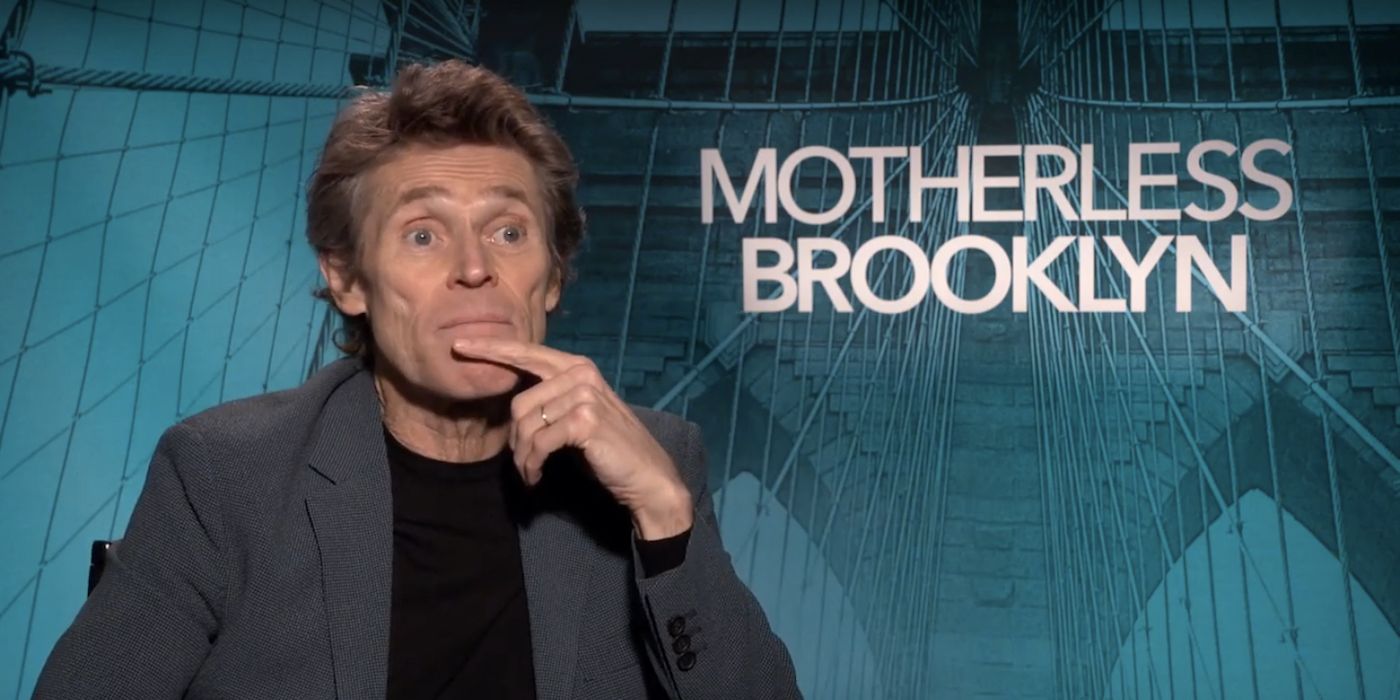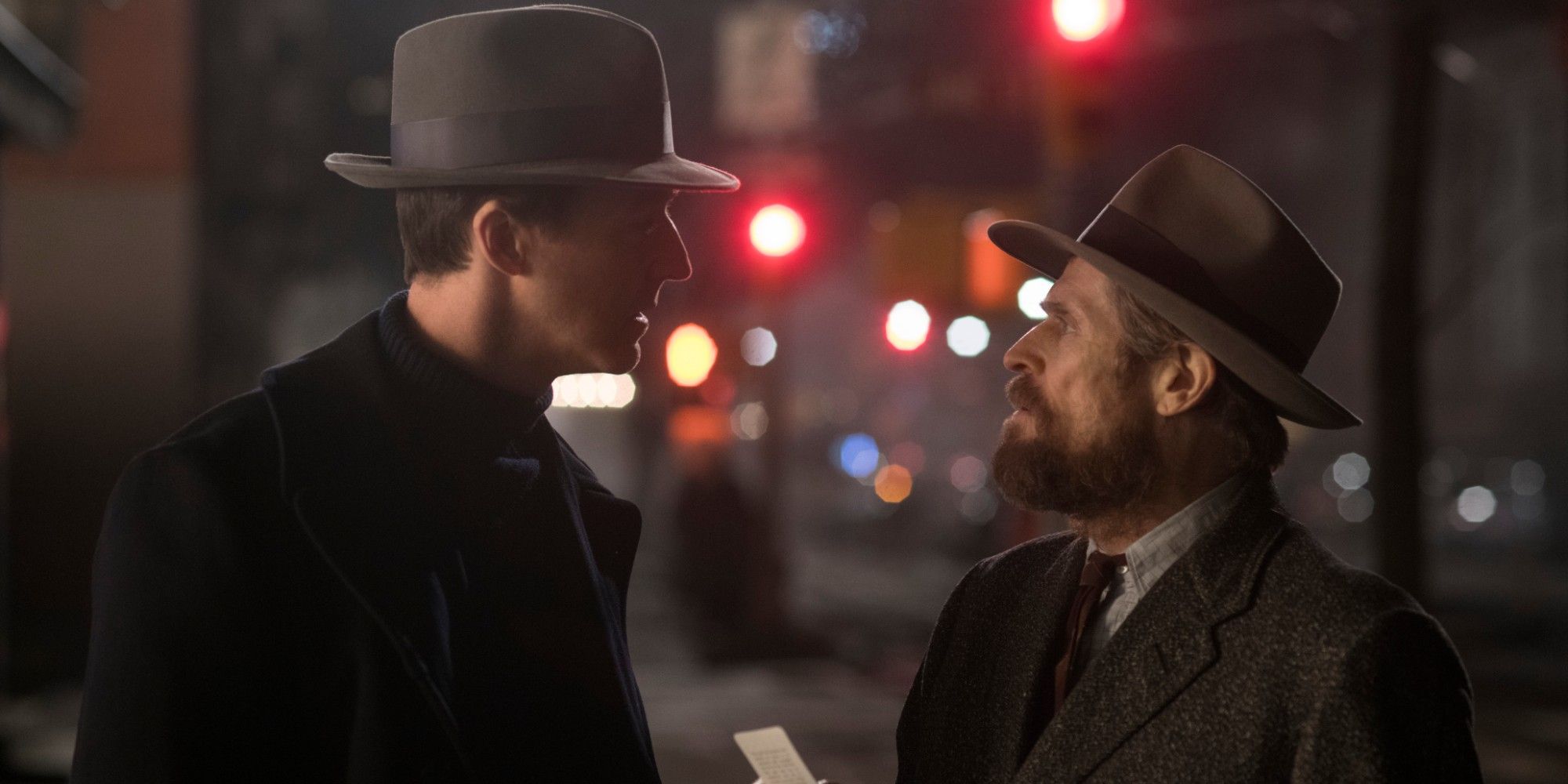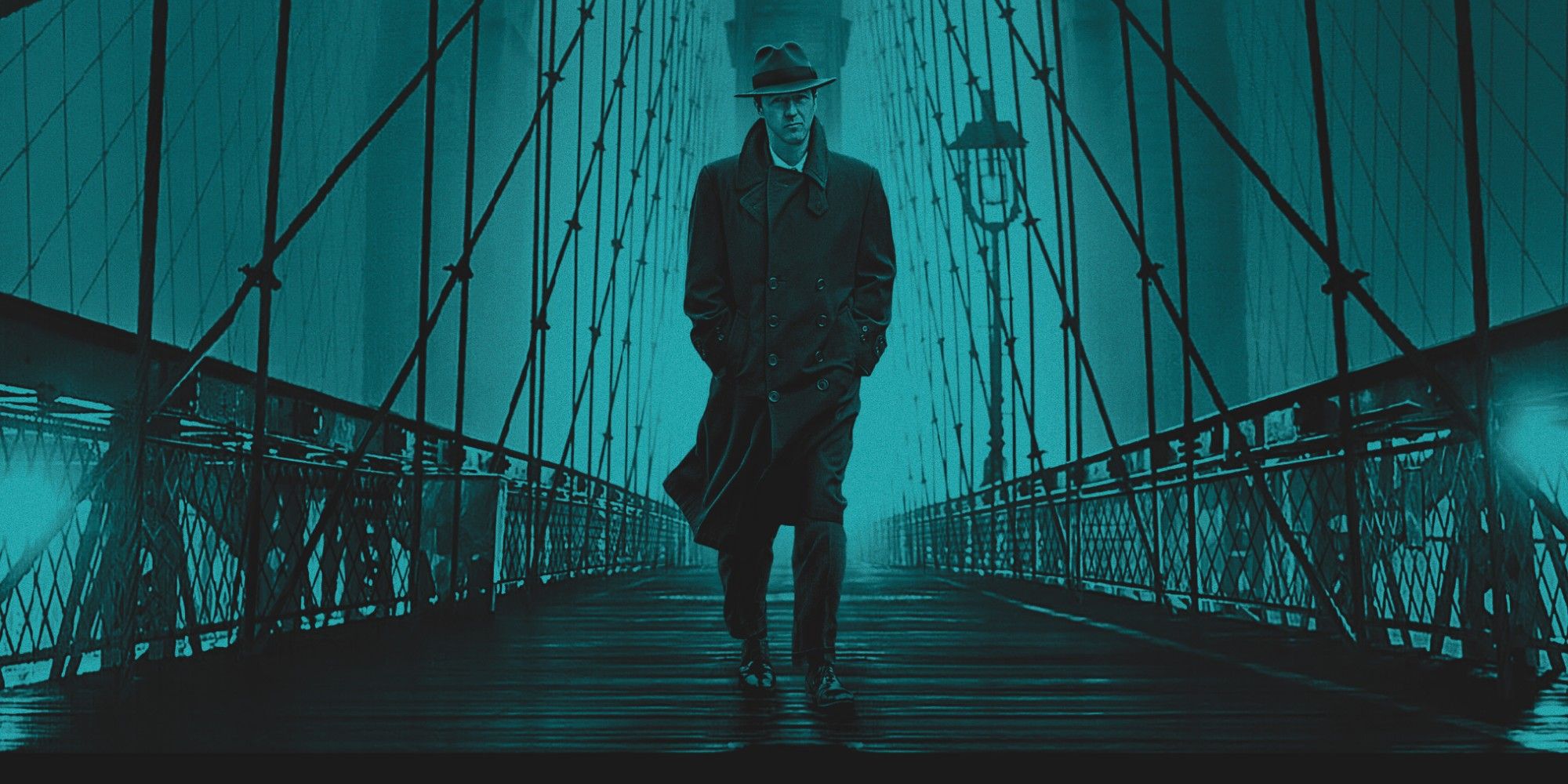The film noir world of Motherless Brooklyn, set in 1957 New York City, isn't much different from our own present day reality. The rich have all the power in the world while the poor are forced to subsist in squalor or do whatever it takes to carve out a respectable existence for themselves and their loved ones. It's an unfair situation, and the odds are so overwhelmingly stacked against the regular people under the iron hand of their oppressors that it borders on totally helpless.
Motherless Brooklyn is a movie about heroes, the people who are underestimated and overlooked, who nonetheless do what they can to make New York City a better place for all people, not just the wealthy and powerful. The film follows Lionel Essrog (Edward Norton, who also writes and directs), a private eye whose investigation into a friend's death winds up unearthing some of the city's darkest secrets. Willem Dafoe's character, Paul, is a mysterious vagabond who knows more about the inner workings of the city's elite class than someone in his position generally should, and he could just be the key to blowing the whole thing wide open! Of course, to see how the whole thing shakes out, audiences will just have to to see Motherless Brooklyn for themselves.
At a New York City press day for Motherless Brooklyn, Screen Rant sat down with Willem Dafoe to discuss his work on the film, from its complex themes and provocative questions to the unquestionable aesthetic grace of the film noir genre. Motherless Brooklyn is out now in theaters nationwide.
This movie, I don't want to give too much away.
It's really difficult to talk about.
But I want to talk about how easy it is to do bad things and profit from them, and how hard it is to be a good person and maintain your integrity and not wind up on the street.
(Laughs) Yeah, well... You talk about the movie pretty well!
Thank you!
Yeah, those questions are in there. I mean, one of the things I like about this movie, it's not a polemic. It's really an entertainment. It's a story. But it really does bring out certain questions that I think are in the air anyway. But sometimes, as we know, it's easier to talk about things through a filter of the past. We can see the present better through a filter of the past. I think that's the case here. That may not be the intent, specifically, for Edward. He originally found a beautiful character that he thought was a beautiful kind of underdog hero, this guy with Tourette's Syndrome. Where what are perceived as his weaknesses become his strengths. There's a moment where he decides to not be passive, and be active, and make his way in the world and do something good. That was the initial impulse. And then when he added this story, set it in the 1950s, took it from the novel set in the 1990s, put it in the 1950s for reasons kind of complicated to explain. And then had a whole other story... That's where that story led, to these questions.
It's so interesting, the relationship between Lionel and Paul, how Paul... It would take very little different for Lionel to wind up like that or worse.
It's true.
Did you have any backstory that's not necessarily in the movie, of the decisions that he made?
Well, so much of the backstory is expressed. Because my character really holds the secrets, some very personal family secrets that are going to right a wrong, let's just put it that way. And in expressing his family history, and his relationship to this secret, he talks a lot about himself, so it's really written. That did not have to be invented. It's told.
Yes.
Yes. Earnestly! Because what has happened to him has really chilled him, has really destroyed him. And he's a man looking for, he's hoping for a rebirth and he's also hoping for justice.
The noir genre is so celebrated for so many reasons. One of them being the aesthetic, the visual, the style. While this goes so much deeper than that, there's also so much fantastic style. The outfits you wear, even the borderline vagabond style, it's still so hip! Did you get to keep any of your clothes or anything like that?
Where would I wear them? (Laughs) So someone could say, "Hey, there's that guy from the movie!" Don't want to call your attention to yourself, you know, for any reason. No.
Fair enough!
But they're good to enter the world. The costumes. The best thing a director can do, I mean, often, people think it's all these conferences between takes, talking about the psychology of things. But more often, it is really wonderful when the director makes a world that is so complete, so articulate, so evocative, that you enter it and it works on you, and it's easy to enter because it's so clear. And that was the case with this, because it was familiar, but also exotic.



